14 Dermatologist-Approved Moisturizers for Winter To Try, Depending on Your Skin Type
As the weather changes, there's more we need to do besides trade lighter layers for sweaters and lightweight serums for more robust formulas. In fact, the first seasonal swap to make is your moisturizer. As in, you're going to need to equip yourself with moisturizers dry skin won't stand a chance against.
The best moisturizers dry skin can't resist, at a glance
- Best lotion for extremely dry skin: CeraVe, Moisturizing Cream, $18
- Best for full-body moisture: Aquaphor, Healing Ointment, $13
- Best for an extremely dry face: Avène, Hydrance Rich Hydrating Cream, $40
- Best with anti-aging ingredients: Byroe Salmon Cream, $120
- Best for dry sensitive skin: Vanicream, Moisturizing Cream, $8
- Best for irritated skin: Aveeno, Calm and Restore Oat Gel Moisturizer, $26
- Best for arms and legs: Eucerin, Skin Calming Cream, $13
- Best for dry oily skin: La Roche-Posay, Effaclar Mat Daily Moisturizer, $36
- Best lightweight moisturizer: SkinMedica, Ultra Sheer Moisturizer, $58
- Best oil-free: Shani Darden Skin Care, Weightless Oil-Free Moisturizer, $48
- Best gel moisturizer: Neutrogena, Hydroboost Water Gel, $27
- Best drugstore moisturizer for dry skin: Clean & Clear, Dual Action Moisturizer, $12
- Best acne-fighting moisturizer: Obagi, Medical CLENZIderm M.D. Therapeutic Lotion, $43
Why do we get dry skin in the winter?
"If not cared for properly, your skin can suffer a lot of damage during the hot summer months," says Jeriel Weitz, DO, a board-certified dermatologist based Bay Harbor Islands, Florida. "Most people experience increased pigment production during the summer as they find themselves spending more time outside in the sun. Furthermore, the damage from summer can lead to dead skin cell build-up. Lastly, as the summer winds down and the weather becomes cooler, your skin needs help retaining moisture."
- Jeriel Weitz, MD, board-certified dermatologist in New York City
- Marc Serota, MD, Dr. Marc Serota is a Board Certified in Dermatologist at wisp.
- Michelle Henry, MD, board-certified dermatologist at Skin & Aesthetic Surgery of Manhattan
Because of all of this, you'll want to shift your moisturizing products from thinner, water-based lotions to thicker, oil-based creams around the same time you swap your cardigans for coats.
Which is the best hydrating moisturizer?
Great question. Unfortunately, the answer depends greatly on your skin type, so there's not one type of moisturizer dry skin can't resist.
For generally dry skin
If you've got any type of dry skin you'll want to use a moisturizer that will really help to seal hydration beneath the surface and prevent it from evaporating into the environment (the phenomenon is known as "transepidermal water loss"). Because of this, Dr. Weitz recommends opting for products that have cream or ointment formulations. "Look for ingredients that are occlusives, meaning that they create a barrier that prevents water from escaping the skin, such as petrolatum, beeswax, shea butter, squalane, mineral oil, and vegetable oils such as soybean oil and grape seed oil," he says.
{{post.sponsorText}}
For dry sensitive skin types
Marc Serota, a board-certified dermatologist at wisp recommends trying to find a simple moisturizer that won't cause or worsen dry or sensitive skin. "This involves removing any ingredients that are harsh or irritating to the skin (such as acids) or ingredients that patients may have allergic reactions to (such as fragrance)." Then to actually help heal dryness, Dr. Serota says to look for moisturizers with emollient properties, like ceramides, that will help the skin retain water.
For seasonally dry skin
During the cold-weather months, moisturizing sensitive skin is just as much about soothing and strengthening as it is about hydrating. The reason? The weaker your skin barrier is, the more prone it will be to irritation. Because of this, Dr. Weitz suggests looking for products that contain ceramides, hyaluronic acid, aloe vera, soy, and colloidal oatmeal, which she says "are gentle and will help to repair the epidermal barrier."
For dry oily skin
"For people with oily skin, the best ingredients are those that will not clog your pores, such as dimethicone and hyaluronic acid," says Dr. Weitz. You may also want to look for ingredients that will slow down your body's natural sebum (or oil) production, like niacinamide, salicylic acid, and glycolic acid.
For dry acne-prone skin
It's a common misconception that acne-prone skin doesn't need moisturizer. In fact, skipping this final step in your routine can actually make breakouts worse. The reason? Depriving your skin of moisture will cause your oil glands to kick into high gear to try and combat the dryness, leading to an overproduction of sebum and the potential for even more clogged pores. "Look for ingredients that are non-comedogenic, anti-microbial, and anti-inflammatory," says Dr. Weitz. Check the formula for moisturizers like dimethicone and hyaluronic acid, and anti-inflammatories and anti-microbials like benzoyl peroxide, salicylic acid, and niacinamide.
The best moisturizers dry skin won't stand a chance against

Dr. Weitz and Dr. Serota are just two of many derms who have recommended this particular cream for dry, winterized complexions. It’s formulated with the most moisturizing skin-care ingredients money can buy—including hylauronic acid, glycerin, and three types of ceramides—and will strengthen your skin barrier to stand up to the effects of even the coldest, driest days. Dr. Serota says its one of his favorite gentle moisturizers that provide hydration without irritating the skin.
Size: 19 oz
Scent: Unscented
Key ingredients: Hyaluronic acid, ceramides, glycerin
Pros:
- Thick and hydrating formula
- Accepted by the National Eczema Association
- Great pick for sensitive skin types
Cons:
- Tub-style packaging isn’t the most hygienic
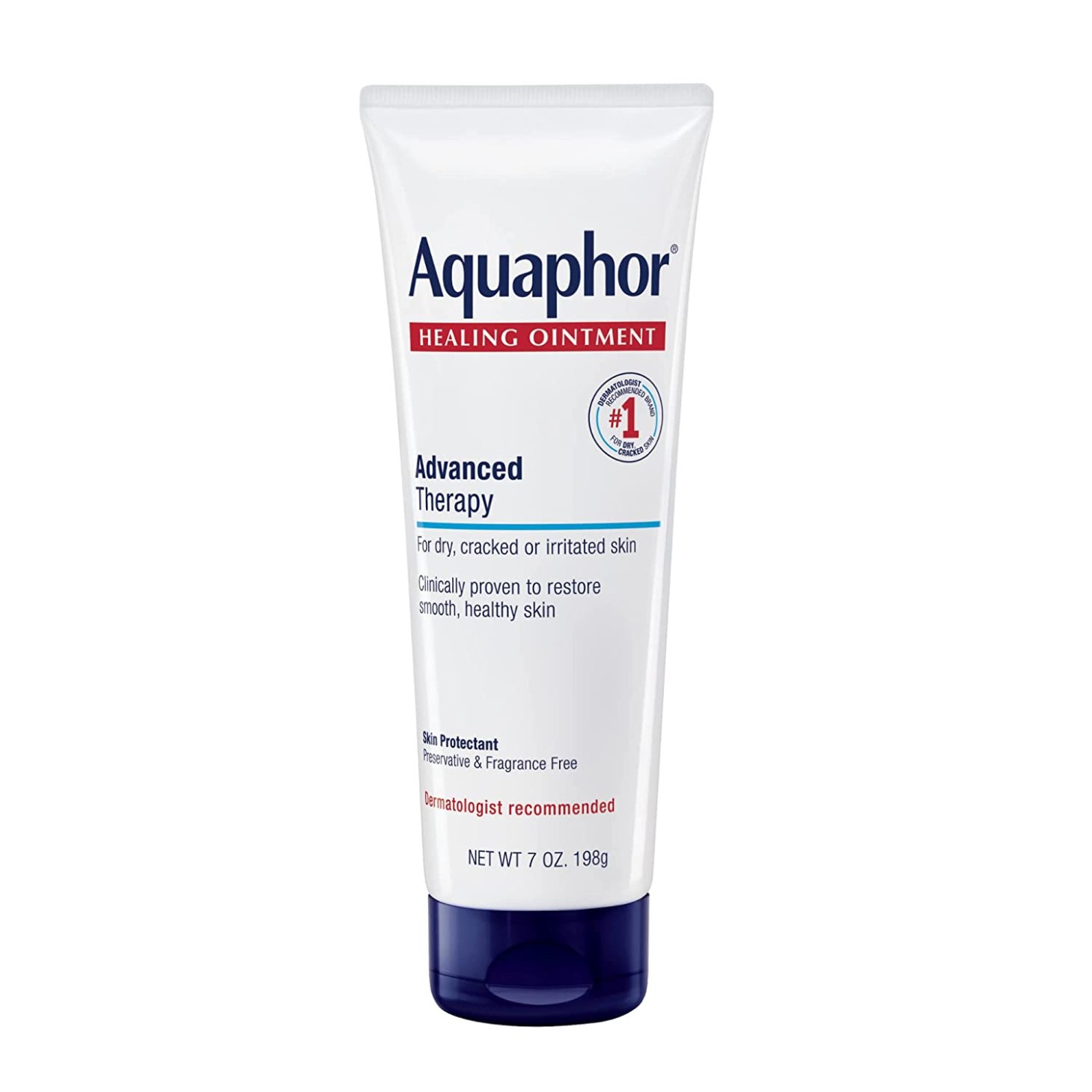
Known as the “swiss army knife” of dry skin treatments, this petroleum jelly product truly does it all. It infuses skin with moisture—so much so that it’s recommended for even the most severely dehydrated and cracked complexions—and acts as a protective layer to seal in hydration for the long haul. Slather it all over (face, lips, hands), and reap its skin-nourishing benefits from now until spring.
Size: 7 oz
Scent: Unscented
Key ingredients: Petroleum jelly, glycerin, mineral oil, lanolin
Pros:
- Holds moisture and creates a barrier on the skin
- Can be used on hands, feet, lips, face, and anywhere else you need moisture
Cons:
- Too thick to be used as a facial moisturizer for sensitive or acne-prone skin
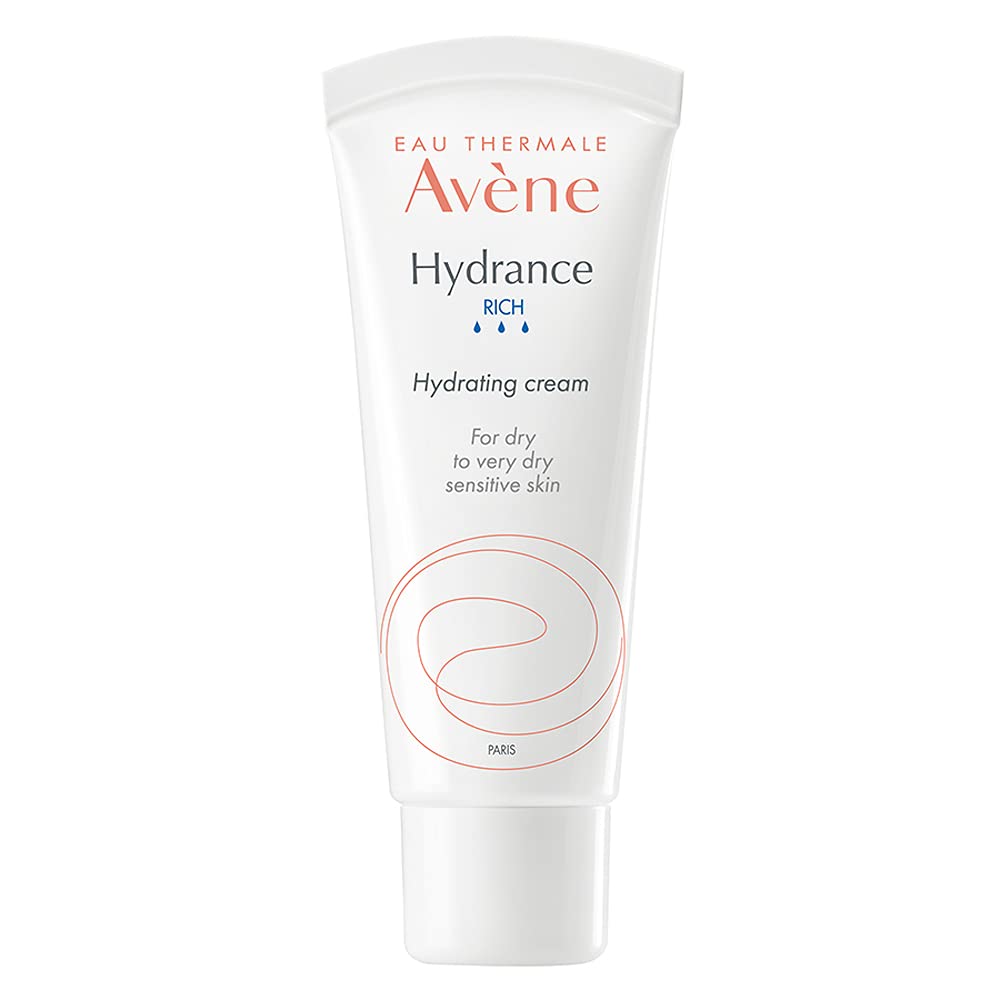
This moisturizer delivers both instant and long-term hydrating benefits, making it the perfect pick to use on dry skin all winter long—especially if you have an extremely dry face. It replenishes your complexion with skin-similar lipids (which come with the added bonus of diminishing the appearance of fine lines and wrinkles), and it soothes and calms skin with a combination of shea butter and the famed Avène thermal water. In a clinical study conducted by the brand, users reported that their skin felt four times more hydrated after 28 days of repeated use.
Size: 1.3 oz
Scent: Light, shea butter scent
Key ingredients: Glycerin, Avène thermal spring water, lipids
Pros:
- Highly rated by folks with extremely dry skin
- Contains skin-similar lipids to combat fine lines
Cons:
- Pricey pick
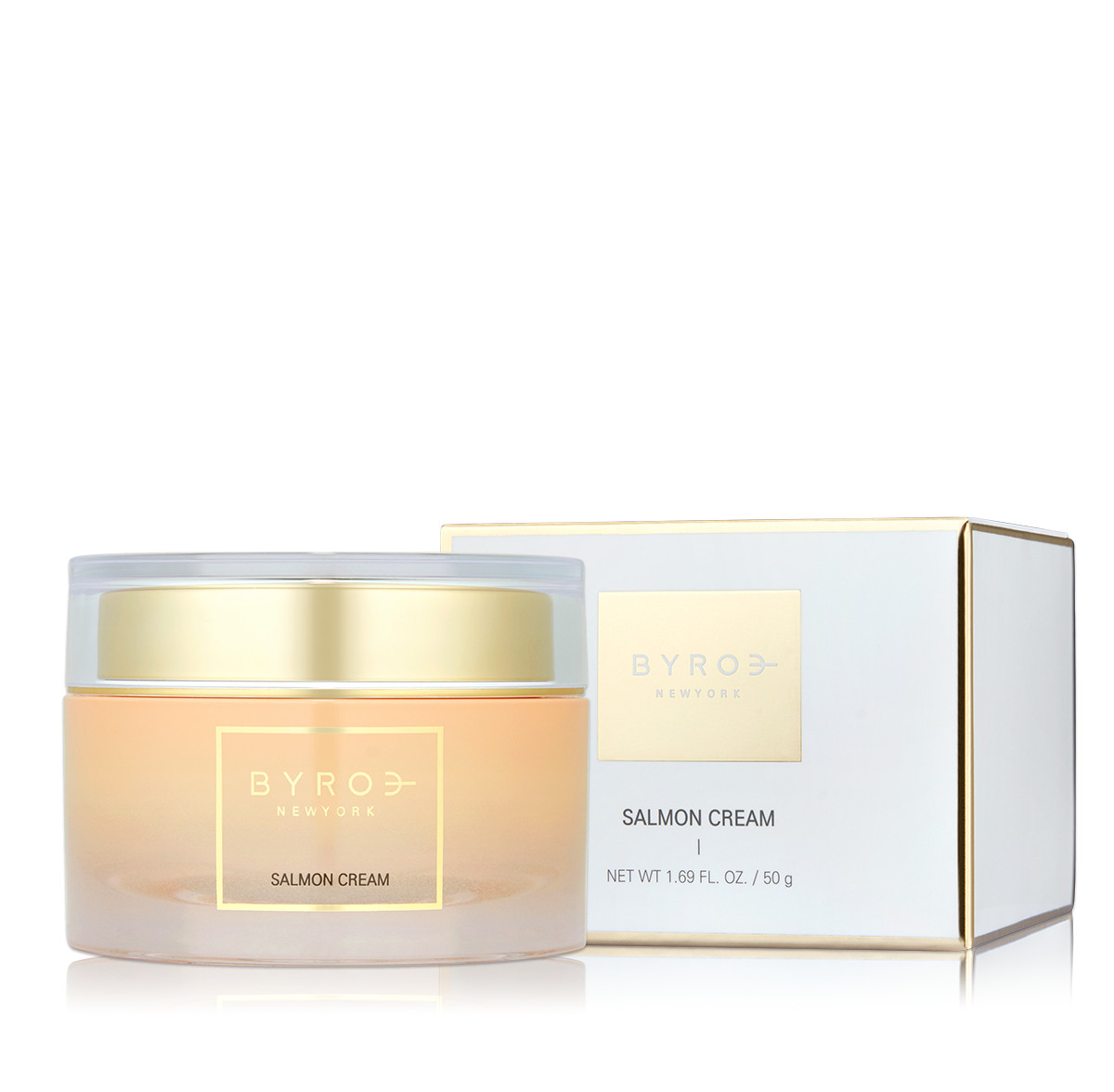
Salmon roe… in your moisturizer? This cream, by Byroe, a clean skincare company that uses healthy and nutrient-rich foods in their products, features salmon egg extract, which is rich in amino acids to help nourish the skin. It also has egg yolk, adenosine (an anti-aging ingredient), and niacinamide to help minimize pores. Michelle Henry, a dermatologist with Skin & Aesthetics Surgery of Manhattan describes this pick as very rich and emollient.
Size: 1.7 oz
Scent: Light floral scent (not fishy!)
Key ingredients: Egg yolk, salmon egg extract, niacinamide, adenosine
Pros:
- Non-oily formula that’s good for all skin types
- Cruelty free
Cons:
- Pricey pick
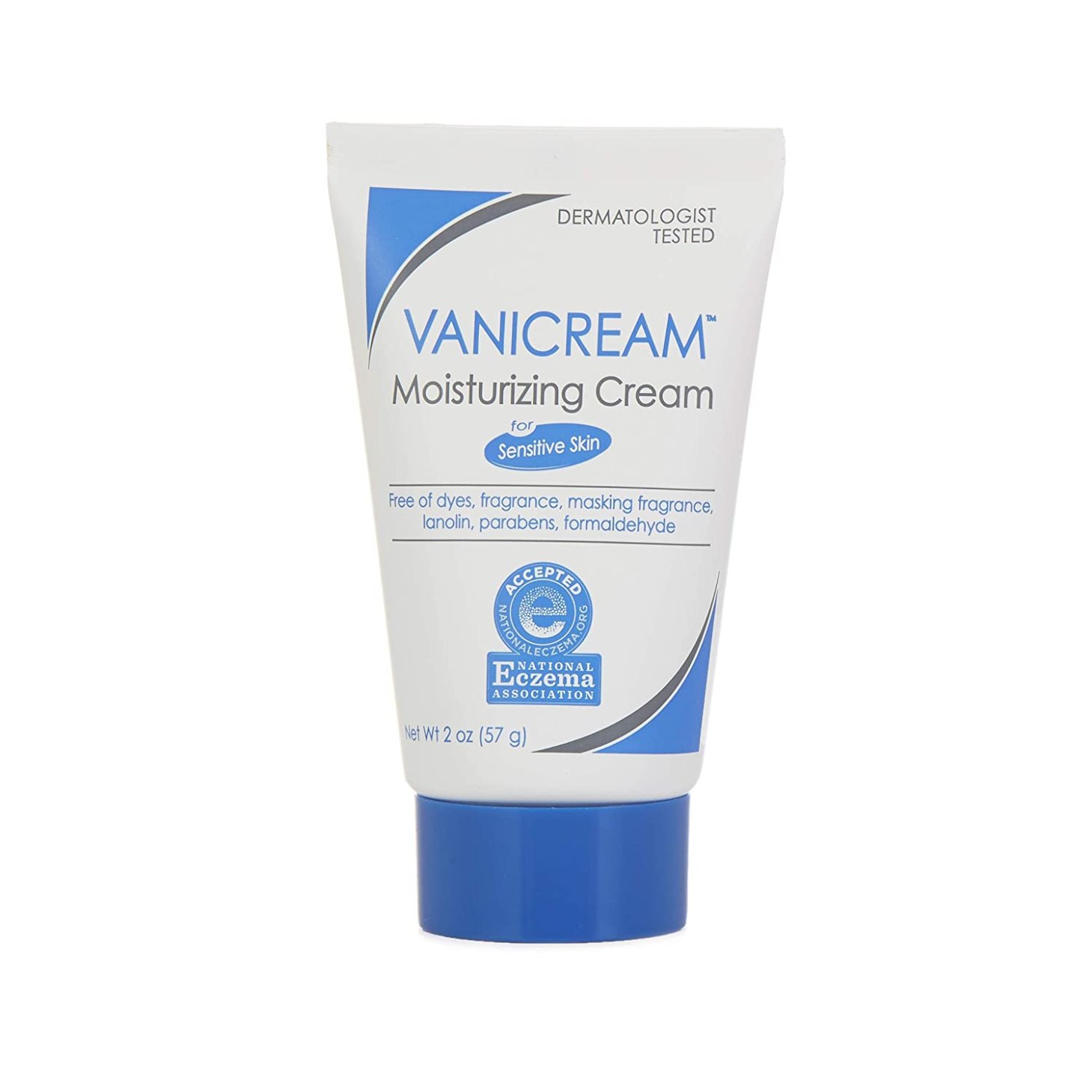
Dr. Weitz names this moisturizer as “one of her favorites” for sensitive skin because it contains ceramides, hyaluronic acid, glycerin, and squalane—which work together to hydrate skin and fortify its barrier. Because it’s so gentle and effective, this multi-purpose cream can be used on your face as well as all over your body.
Size: 2 oz
Scent: Fragrance free
Key ingredients: Squalane, glycerin, hyaluronic acid, ceramides
Pros:
- Gentle formula for dry sensitive skin
- Accepted by the National Eczema Association
Cons:
- Formula may be too thick for some
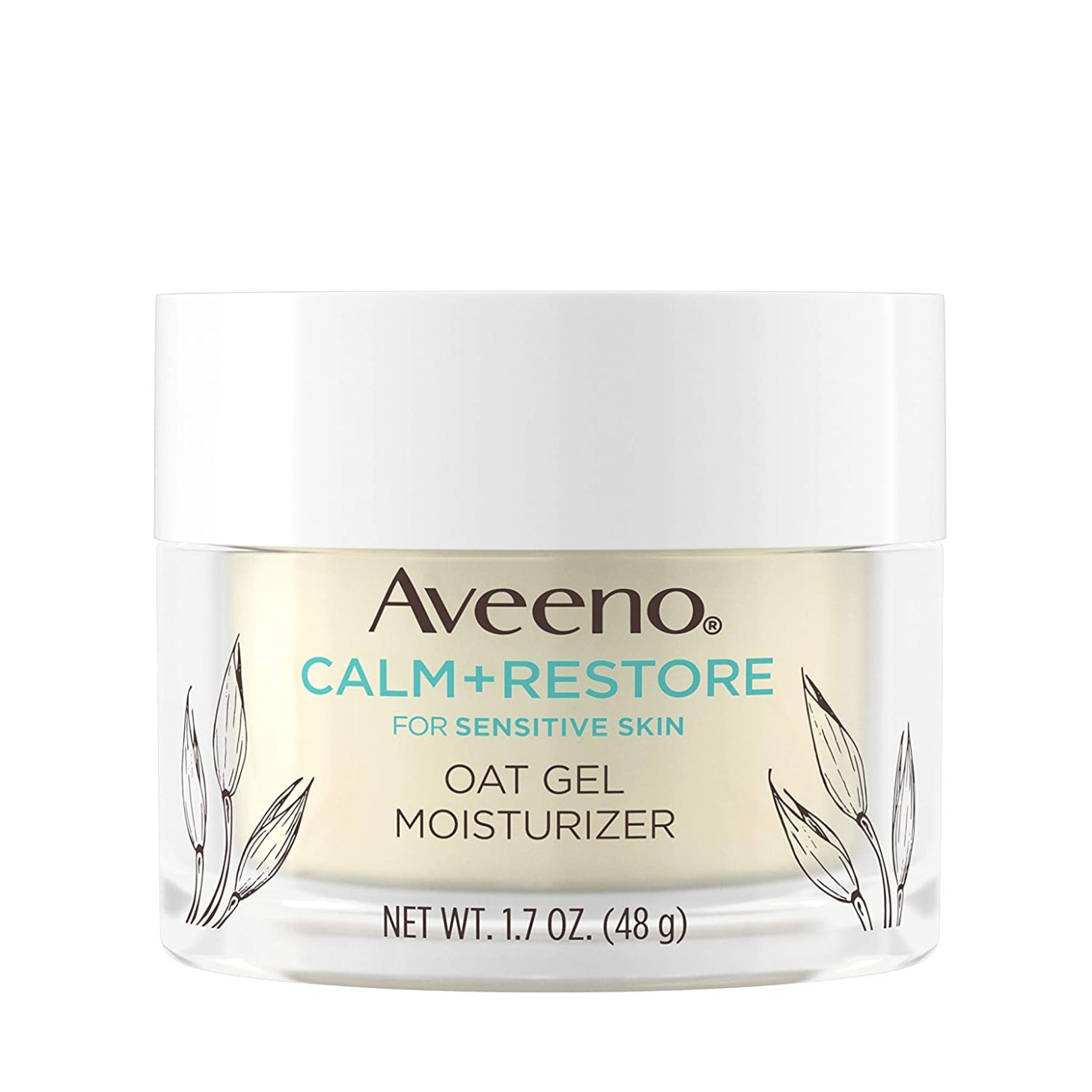
Colloidal oatmeal is constantly getting the derm stamp of approval for treating sensitive skin, thanks to the fact that it’s soothing, moisturizing, and anti-inflammatory, and this moisturizer delivers the ingredient in spades. It’s lightweight, yet effective, and works to calm down even the angriest, most irritated complexions.
Size: 1.7 oz
Scent: Fragrance free
Key ingredients: Colloidal oatmeal, glycerin, chrysanthemum flower juice
Pros:
- Contains soothing chrysanthemum flower and colloidal oatmeal
- Glycerin adds and locks in moisture
Cons:
- Container isn’t the most hygienic
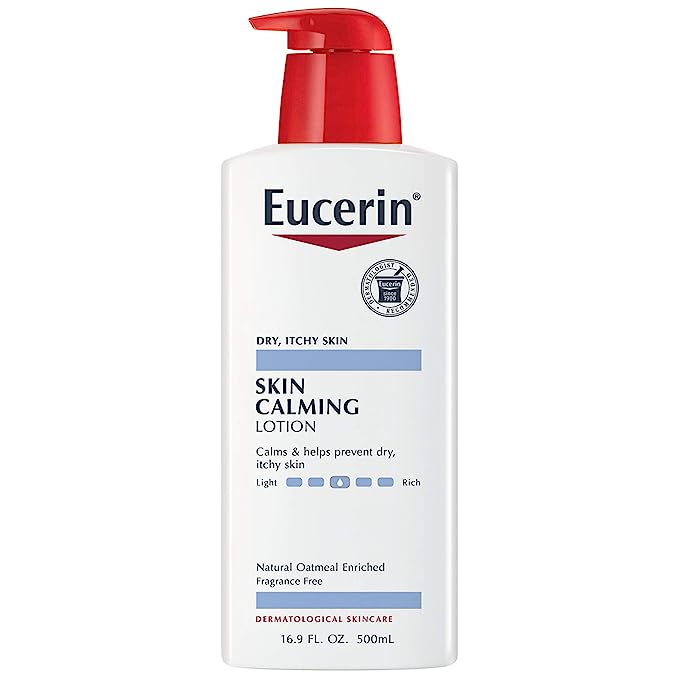
Another oatmeal-enriched product, this cream will make skin itching and irritation a distant memory. It absorbs quickly (and deeply) into skin, and will deliver hydration for 24 hours after you apply it. Plus, this non-greasy, fast-absorbing formula comes in a larger bottle, making it a great pick for dry arms and legs.
Size: 17 oz
Scent: Fragrance free
Key ingredients: Glycerin, mineral oil, benzyl alcohol, colloidal oatmeal
Pros:
- Non-greasy and unscented formula
- Economical bottle for dry arms and legs
Cons:
- Some customers say it’s a little sticky
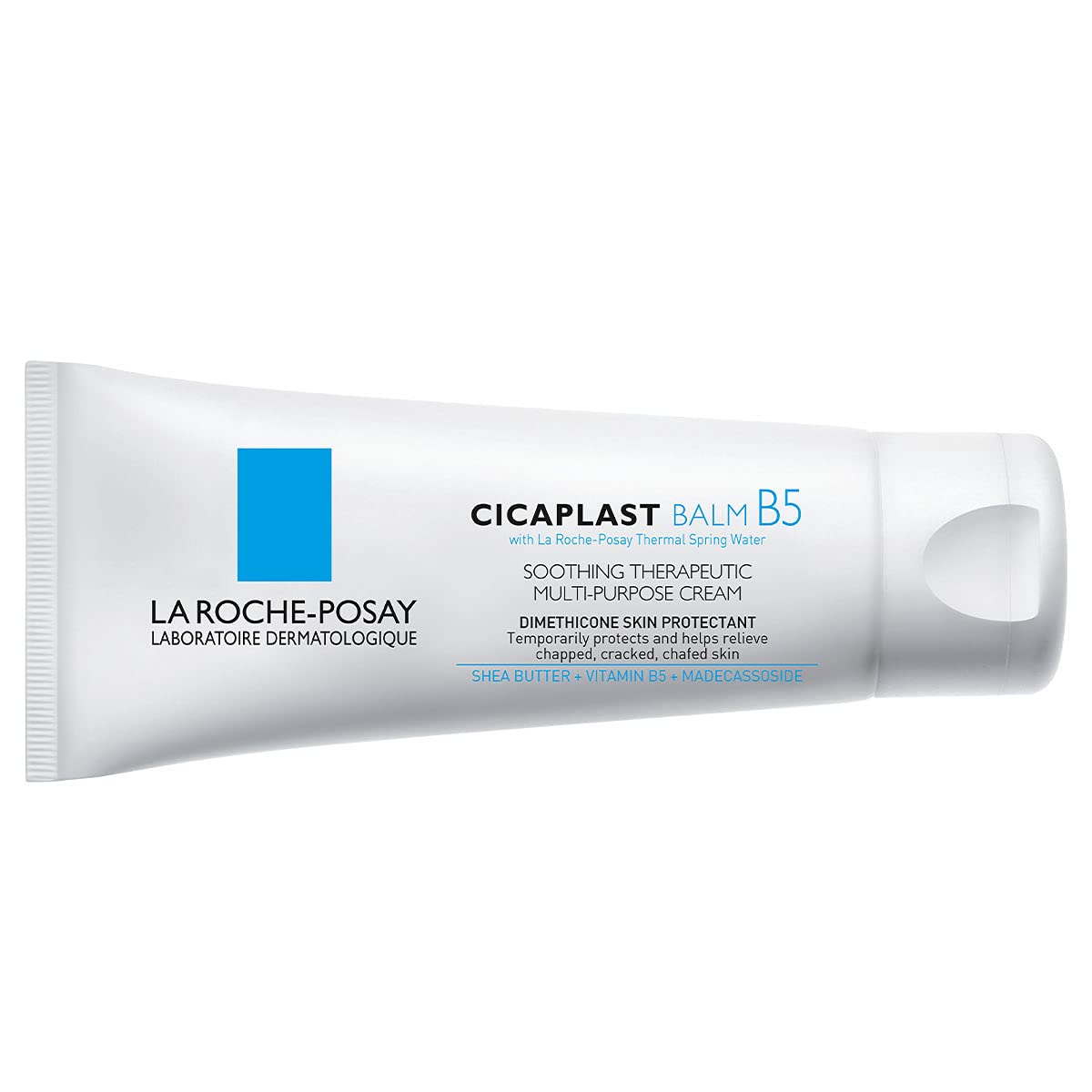
This multi-purpose cream can be used wherever you have dry skin—on your face, lips, hands, feet, elbows, and more. It’s safe for adults and babies one week and older, and it’s fragrance-free, oil-free, and allergy tested. It has shea butter, glycerin, and vitamin B5 to soothe your skin and give it a boost of moisture, without leaving behind a greasy finish. “It’s really great for sensitive skin that irritates easily,” adds Dr. Henry.
Size: 1.4 oz
Scent: Fragrance free
Key ingredients: Glycerin, shea butter, vitamin B5, thermal spring water
Pros:
- Safe for babies and super sensitive skin types
- Thick formula helps protect skin barrier
Cons:
- May be too thick for acne-prone skin
- Smaller size
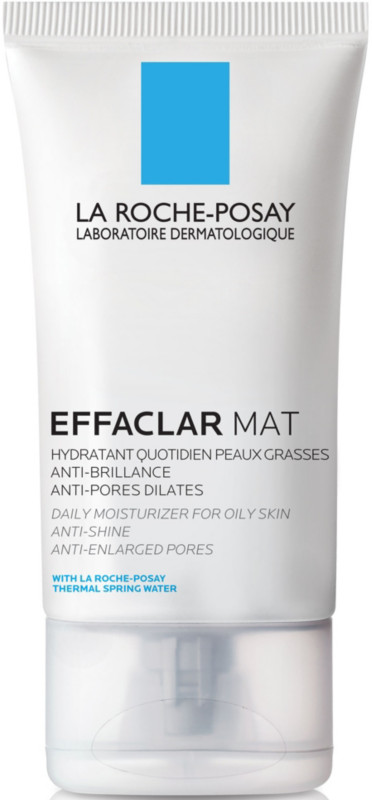
Another pick from La-Roche Posay, the Effaclar Mat formula was designed specifically with oily skin in mind. This antioxidant-rich moisturizer protects against free-radical damage (it’s got vitamin C and E in the mix), and employs salicylic acid to tighten pores and reduce oil production. Plus, it leaves behind a smooth, matte finish, which means you won’t ever have to deal with slick, shiny skin.
Size: 1.4 oz
Scent: Fragrance free
Key ingredients: Salicylic acid, glycerin, thermal spring water, vitamin C and E
Pros:
- Matte consistency is great for those with dry oily skin
- Formulated with vitamins C and E
Cons:
- Some customers report pilling
- Smaller package for the price
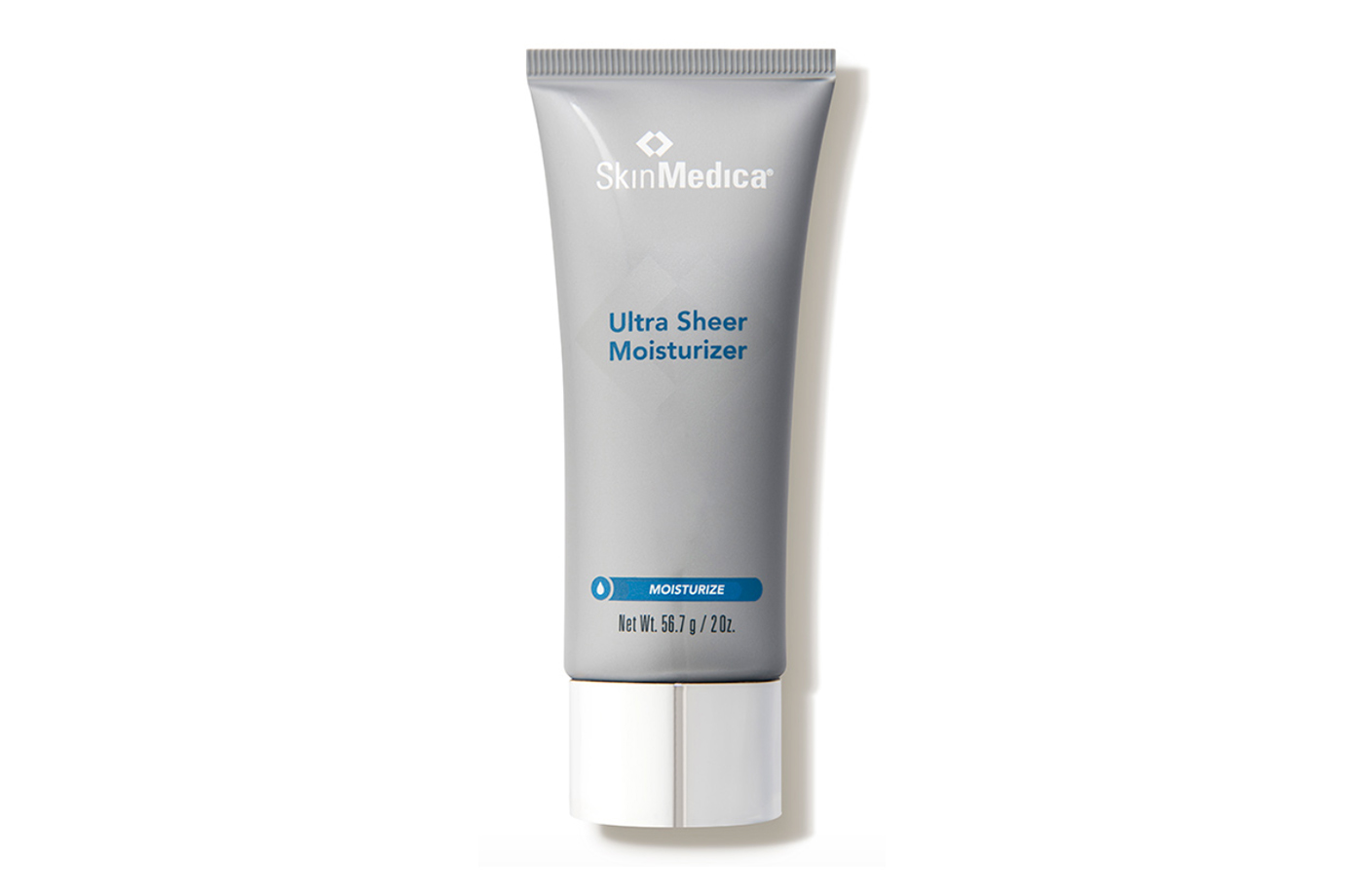
Dr. Weitz loves this lightweight moisturizer because it’s got skin-soothing niacinamide (which acts as an acne-fighting anti-inflammatory and diminishes the appearance of dark spots) and contains potent antioxidants by way of vitamins C and E. It goes on sheer, and seeps immediately into skin to create a smooth, radiant complexion.
Size: 2 oz
Scent: Fragrance free
Key ingredients: Nicinamide, vitamin C and E, cetearyl alcohol
Pros:
- Lightweight, yet moisturizing formula for oily or acne-prone skin
- Contains niacinamide to combat redness and age spots
Cons:
- Pricey pick
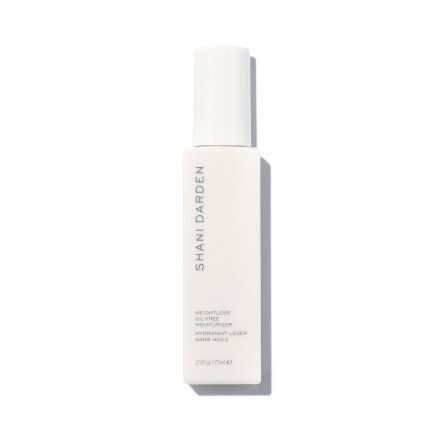
This lighter-than-air, oil-free moisturizer is made with hydrating hyaluronic acid, plumping hydrolyzed collagen, and softening red algae extract. It melts immediately into your skin, resulting in a smooth, nourished complexion that never feels greasy or goopy.
Size: 2.5 oz
Scent: Fragrance free
Key ingredients: Red algae extract, hyaluronic acid, hydrolyzed collagen
Pros:
- Red algae extract helps with skin softness
- Collagen encourages plumping
Cons:
- May be too light for some
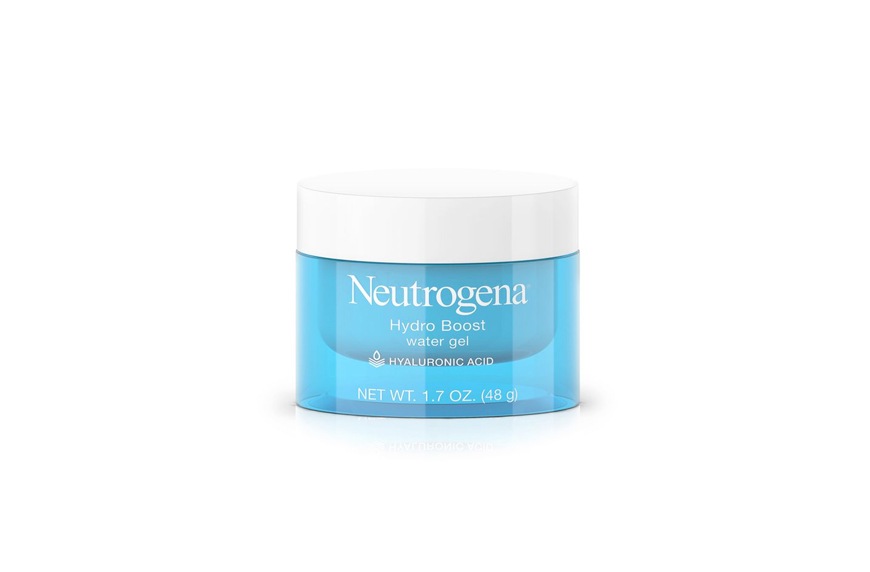
Derms don’t go a day without recommending this gel moisturizer to their acne-prone patients, and it’s for good reason. It’s packed with skin-quenching hyaluronic acid, which acts as a natural humectant to help your skin hold water and appear smoother. Plus, its lightweight, jelly texture is totally non-comedogenic, so you won’t ever have to worry about it clogging your pores.
Size: 1.7 oz
Scent: Fragrance free
Key ingredients: Hyaluronic acid, glycerin
Pros:
- Lightweight and non-comedogenic gel formula
- Hyaluronic acid helps quench dry skin
- Widely available at stores
Cons:
- May not be thick enough for some
- Pricey for size
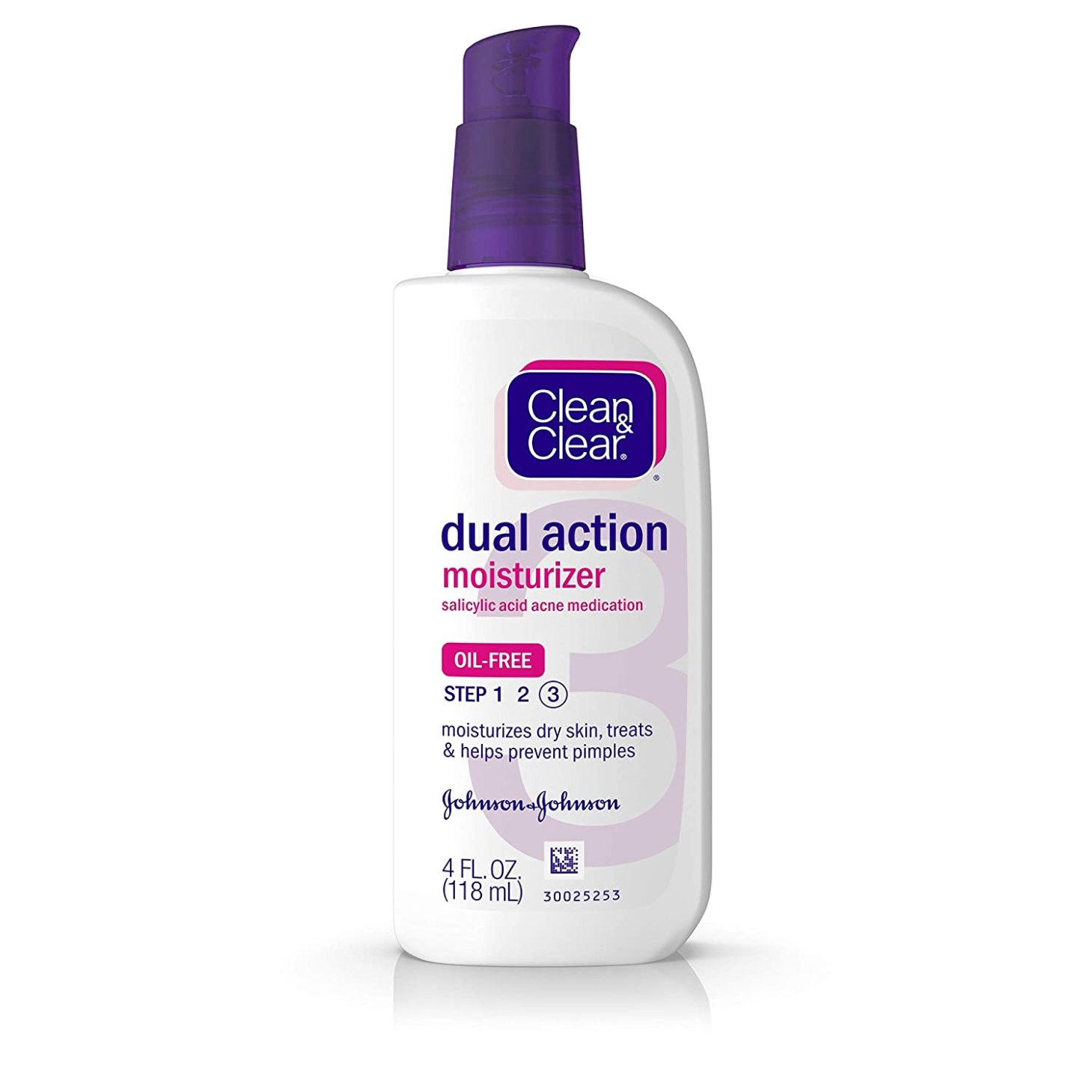
This oil-free moisturizer is a great drugstore pick for folks with acne-prone skin. It contains salicylic acid, a beta-hydroxy acid that crystallizes down to a teeny, tiny size so that it’s able to get way down deep into your pores and clear away dirt, grime, and oil from the inside out. It’s also got glycerin in the mix, which will help to combat winter dryness. Best of all, you’ll find this pick at just about any drugstore.
Size: 4 oz
Scent: Fragrance free
Key ingredients: Glycerin, salicylic acid
Pros:
- Widely available at drugstores
- Budget-friendly price
- Lightweight formula for acne-prone skin
Cons:
- May be too lightweight for some
- Less skin-care powerhouses than other formulas on this list
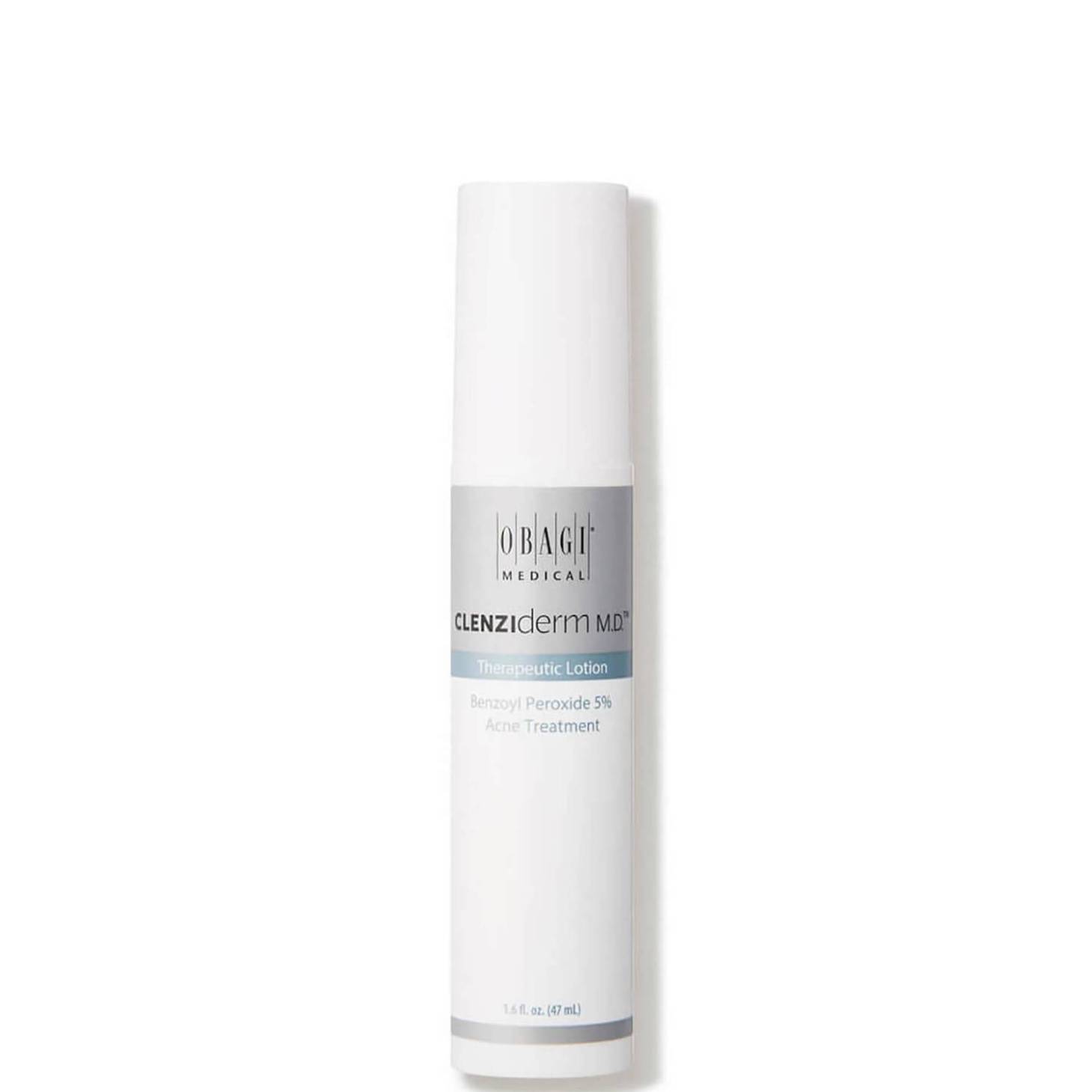
This hydrating moisturizer contains a 5 percent concentration of benzoyl peroxide, a potent acne-fighting ingredient that has a reputation for being drying. But, because this formula pairs it with hydrating squalane (which is known as the “big gulp” of moisturizing ingredients), it works to clear out congested pores without stripping your skin.
Size: 1.7 oz
Scent: Fragrance free
Key ingredients: Squalane, benzoyl peroxide, glycerin
Pros:
- Targets acne without drying
- Glycerin helps lock in moisture
Cons:
- Pricier pick
Things to consider before buying
Focus on ingredients that do the following:
Hydrate: Moisturizing ingredients, also often referred to as emollients, include ceramides, oils, and fatty acids. These key players help hydrate and repair the skin barrier.
Retain: If you want that good hydration to stick around opt for formulas that contain humectants, which draw in moisture and retain it. Humectant ingredients like hyaluronic acid and glycerin will ensure that your skin absorbs and holds moisture.
Protect: Occlusives, such as silicon or petroleum, help to coat and protect the skin from moisture loss. Just note that these ingredients can sometimes clog pores and may not be ideal for those with acne-prone skin.
Calm: If your dry skin is agitated, consider formulas with soothing aloe vera or colloidal oatmeal. Niacinamide and salicylic acid are also good options for reducing inflammation.
Know your skin type
Of course, the formula that works for you will depend on what your dry skin needs. If you're someone with dry, acne-prone skin, you'll need a moisturizer that's non-comedogenic and anti-inflammatory. If you tend to have dry but sensitive skin, you'll need gentle, calming ingredients. If you're not sure what type of skin you have, you may want to visit your dermatologist to get a better understanding of your skin's needs.
Frequently asked questions
Why is my skin so dehydrated even when I moisturize?
If you're moisturizing regularly and not seeing the results you want, you may need to examine the ingredients you're using. The problem may be that your product lacks humectants, which not only provide moisture to the skin, but help retain moisture. Hyaluronic acid and glycerin are two ingredients that may help change the game for very dry skin. Also, beware of over-exfoliating, and be sure that you're not encouraging dry skin with your shower routine.
How often should you moisturize very dry skin?
Very dry skin should be moisturized every day, as part of your regular skin-care routine. Just be sure that the ingredients you're using are right for your skin type—using the wrong product for your skin type (or too much moisturizer) can cause breakouts or interrupt our skin's natural oil production. If you feel like the product you're using is doing more harm than good, stop using it immediately and consider chatting with your dermatologist.
Loading More Posts...